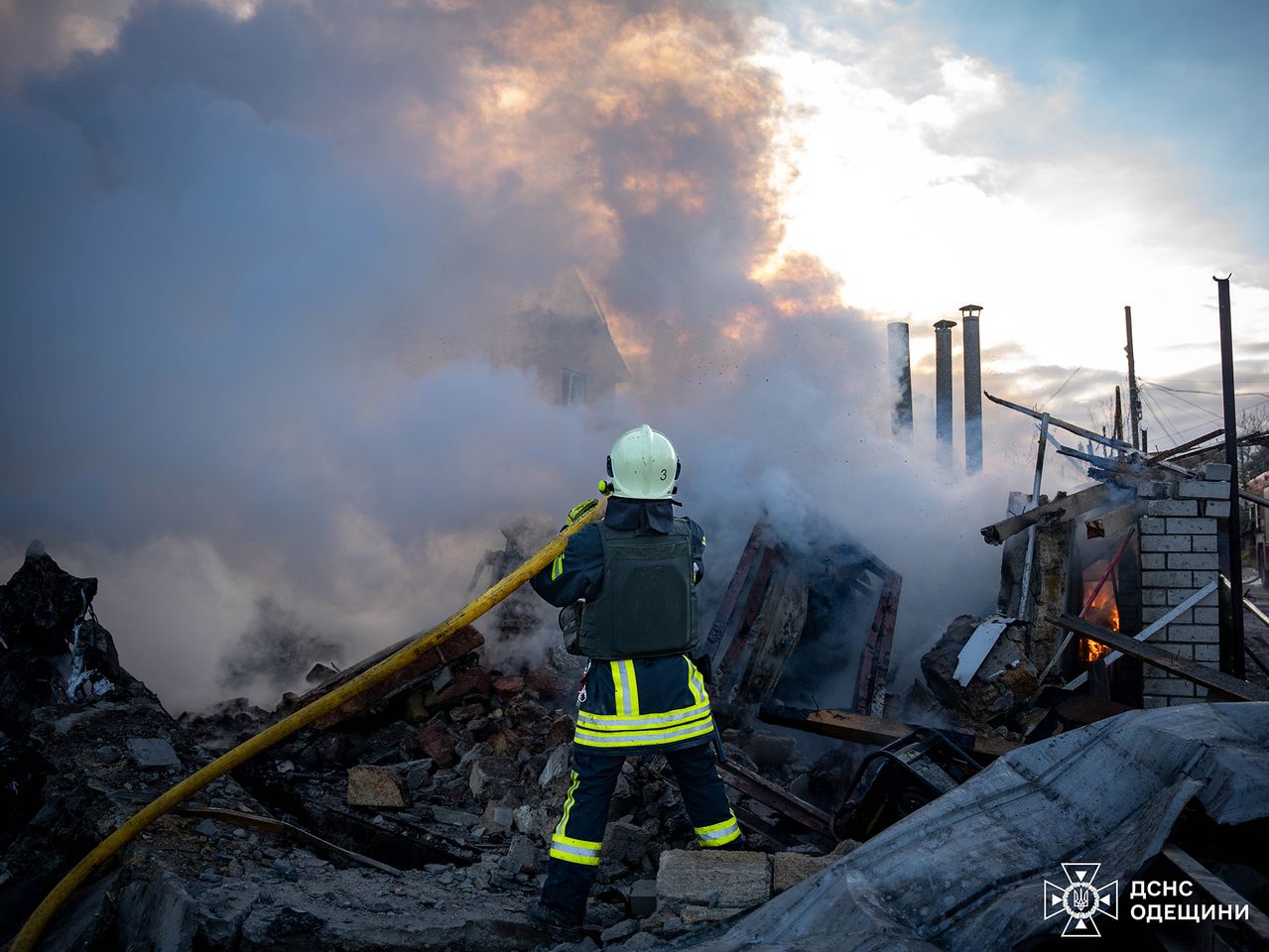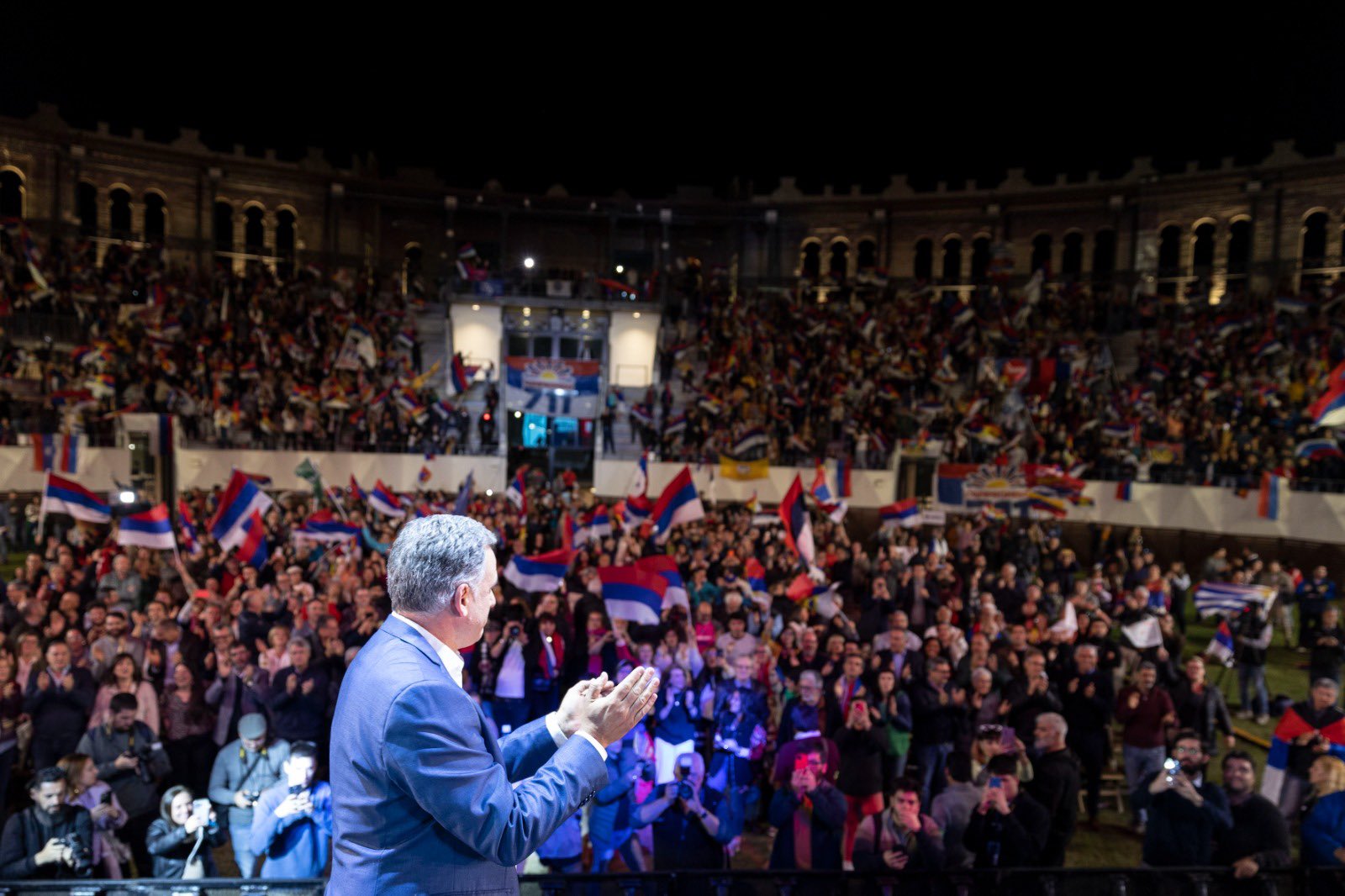Welcome to Factal Forecast, a look at the week’s biggest stories from the editors at Factal.
We publish our forward-looking note each Thursday to help you get a jump-start on the week ahead.
Week of November 22 – 29
A Look Ahead
Nov. 24 – Uruguay presidential runoff
A close race for the presidency in Uruguay will come to an end on Sunday, as voters return to the polls for a run-off election with big implications for the country’s future.
What’s happened so far
After none of the 11 candidates garnered a majority during the first round of voting last month, top vote-getters Yamandú Orsi and Álvaro Delgado moved on to the runoff. Orsi, with the left-leaning opposition Broad Front coalition, garnered the most votes and has consistently led center-right candidate Álvaro Delgado in polls, albeit with a slim margin. Third-place finisher Andrés Ojeda, an up-and-coming conservative, has backed Delgado. At a closing debate, both candidates promised to reduce crime and not raise taxes but presented different ways to accomplish both goals.
The impact
Uruguayans have cited insecurity, unemployment and drug trafficking as the country’s biggest problems. If voters elect Orsi, it will mean a return to power for the Broad Front coalition — which ruled from 2005 to 2020 — but with a candidate who says he wants a “modern left” that will tackle homelessness, poverty and crime with the promise to hire thousands more police officers. If Delgado wins, he plans to downsize the government and lay off thousands of state employees. This would continue a shift away from the left that began with the previous election.
Nov. 27 – Indonesia regional elections
Indonesians will head to polls Wednesday to elect local leaders, a month after newly elected President Prabowo Subianto was sworn into office.
What’s happened so far
The world’s third largest democracy will be voting to elect 37 governors, 93 mayors, 415 regents and their respective deputies. It will be the first election since widespread protests erupted this summer after the parliament, backed by then-President Joko “Jokowi” Widodo, attempted to override a Constitutional Court decision lowering the threshold for parties to nominate candidates and upholding a minimum age limit for gubernatorial candidates. Protesters saw the parliament’s move as an attempt to maintain the status quo and prevent Widodo’s opposition from gaining power.
The impact
The regional election is crucial to Indonesia’s political landscape for the next five years, as it determines whether the central government’s programs would be supported and executed by local authorities. Analysts are keeping a close eye on the results in major cities and regions such as Jakarta and Java, which are seen as stepping stones to the center of Indonesian government. While many see incumbent President Subianto, who was endorsed by Widodo, as the ruling coalition’s attempt to preserve Widodo’s legacy, it is unclear whether he will maintain his influence at both national and local levels.
There is a rising cost of misinformation and noise in risk intelligence
Despite mounting costs from noise, misinformation and AI pollution, it can be challenging for some to peel away from the firehose. The “fear of missing out” feeds the misconception that seeing everything ensures you won’t miss anything. But it’s not sustainable. Information pollution is getting worse, good analysts are harder to find and security budgets are tighter than ever. There is a better way.
Nov. 27 – Marine Le Pen embezzlement trial ends
French far-right politician Marine Le Pen’s embezzlement trial is scheduled to end on Wednesday, with the verdict delivered at a later date.
What’s happened so far
Long-standing leader of France’s far-right National Rally Le Pen is accused, along with her party and 24 others — many of whom are current or former French European Parliament members — of embezzling EU funds to pay assistants for work on party affairs. Le Pen, who denies the charges, will be given a verdict at some point early next year after the trial concludes Wednesday.
The impact
A guilty verdict for Le Pen, which she is anticipating, would shake France’s domestic political scene ahead of the country’s crucial presidential election in 2027. If found guilty, Le Pen, who has finished second to President Emmanuel Macron in the last two French presidential elections, could be barred from running as part of a five-year public office ban on top of a requested multi-year prison sentence.
Nov. 28 – New York City Thanksgiving Day parade
More than 3 million onlookers are expected to line the streets of Manhattan on Thursday morning for the 98th annual Macy’s Thanksgiving Day Parade.
What’s happened so far
The annual spectacle of floats, balloons and marching bands is considered by many to be the unofficial kick-off to the holiday season, and with its prominence comes tight security measures, though authorities have not reported any specific or credible threats so far.
The impact
Pro-Palestinian protesters briefly disrupted last year’s event as demonstrators attempted to spread their message to a record 28.5 million viewers that tuned in in 2023, resulting in more than 30 arrests. While it’s too early to tell how the weather may impact festivities, strong winds carry the potential to wreak havoc and have led to injuries among bystanders in past years.
Nov. 29 – Spain’s ruling PSOE federal convention
The Spanish Socialist Workers’ Party (PSOE) will hold its 41st convention beginning Friday despite recent changes in Prime Minister Pedro Sanchez’s schedule in the aftermath of the DANA storm system (members’ link).
What’s happened so far
The event will take place in Seville with a focus on setting PSOE’s principles and programs that will define the party’s political strategy for the next three to four years. The main issues of debate within the party will be the funding model of Spain’s autonomous communities, the national housing crisis and Catalonia’s singular financing model. At least six regional PSOE federations have submitted amendments to the party’s proposal to federalize the national treasury. According to the party, some 170,000 members from 4,000 branches across the country are expected to attend the event.
The impact
While Sanchez is expected to be renewed as the party’s secretary general for another term, it is highly likely that the federal executive commission of the party will be restructured. Sanchez’s re-election as secretary general positions him as the party’s candidate for the 2027 general election and the renewal of regional leaders will follow. Members of the federal ethics and guarantees committee will also be renewed.
Nov. 29 – Ireland snap election
Voters in Ireland will elect members to the Dáil Éireann, the lower house of the country’s parliament, in a much-anticipated general election on Friday, picking candidates under a form of proportional representation known as the single-transferable vote.
What’s happened so far
Ireland’s President Michael Higgins dissolved the country’s parliament in early November after Prime Minister Simon Harris, leader of the center-right Fine Gael party, announced the date of the election two days before, kicking off a short and sharp three-week campaign. Harris, who took office earlier this year, is hoping to secure an unprecedented fourth term in office for his party, but faces stiff opposition from Fianna Faáil, another center to center-right party. Sinn Fein, the left-wing nationalist party led by Mary-Lou McDonald, hopes to increase its share from a surprisingly strong showing in 2020.
The impact
Governments in Ireland have switched between Fine Gael and Fianna Fail for the past century with Sinn Fein hoping to change this, but a recent reversal in polls has shown Fine Gael, the governing party, come from behind to erase Sinn Fein’s lead. Election watchers have warned that a strong showing by independents, especially in rural areas, and votes by late deciders could unexpectedly shift the balance of power.
What Else Matters

Russia strikes Ukraine’s energy grid
Moscow ended a relatively long three-month lull in long-range missile barrages targeting the entirety of Ukraine early Sunday by unleashing a barrage of 120 cruise and ballistic missiles and 90 missiles that left at least 10 people dead. The barrage renewed Russia’s long-running campaign to destroy Ukrainian power generation and distribution networks, particularly entering the winter months in order to freeze the population. While the full impact on Ukraine’s power grid remains unclear, authorities acknowledged “significant” damage and rolling blackouts across all of Ukraine since.
Watch for: The question now becomes whether Russia will recycle tactics from the past two winters to launch repeated missile packages across Ukraine, including Kyiv and western regions more than 1,000 kilometers from frontline fighting. While Moscow launches drone barrages toward Kyiv and other non-frontline parts of Ukraine virtually every night, export control failures and a Russian economy completely reoriented to a war footing have led to increased production of missiles. This, combined with Moscow’s three-month lull in long-range strikes, means Russia likely possesses significant stockpiles of cruise missiles, its weapon of choice to strike targets deep into Ukraine. The White House’s widely-reported shift to allow Ukraine to strike inside of Russia with U.S. and British/French-supplied missiles also won’t significantly degrade Moscow’s ability to launch these strikes, though it could present Moscow with dilemmas that could ultimately help free up Ukraine’s thinly-stretched air defenses.
Smog in northern India and Pakistan
Air pollution levels reached record highs in recent weeks in northern India and Pakistan, smothering major cities like Delhi and Lahore. India’s capital of New Delhi was forced to suspend in-person classes and construction work, and children, seniors and residents with chronic illnesses urged to stay indoors. Hundreds of people were hospitalized with respiratory problems in Pakistan’s Punjab region at peak air pollution levels. The increase in smog is an annual occurrence in the late fall and winter in the region, largely attributed to farmers burning crop residue, as well as industrial and vehicle emissions.
Watch for: New Delhi will continue its air pollution restrictions until further notice, with the capital’s government under pressure from the Supreme Court to maintain the measures. Authorities may take measures to control the smog, such as water sprinklers or cloud-seeding, but critics say these only mitigate problems, and that pollution sources must be directly addressed. Smog will likely remain a problem in the region through the remainder of the winter.
Extended Outlook
What’s on our radar in the coming weeks…
Nov. 23 – 29
Nov. 23
- India’s Maharashtra election
Nov. 24
- Uruguay presidential runoff
Nov. 25
- India Parliament’s winter session to begin
Nov. 27
- Indonesia regional elections
- Marine Le Pen embezzlement trial ends
Nov. 28
- Ireland snap election
- Macy’s Thanksgiving Parade
Nov. 29
- Spain’s ruling PSOE federal convention
Nov. 30 – Dec. 6
Nov. 30
- Iceland snap elections
Dec. 1
- OPEC+ meeting
- Ukraine loan disbursements could start
Dec. 2
- Netanyahu to take stand in corruption trial
Dec. 3
- Italy Vega-C rocket launch
Dec. 4
- Hunter Biden to be sentenced
Dec. 5
- Sentencing of Memphis officer in Tyre Nichols case
Dec. 7 – 13
Dec. 7
- Ghana election
Dec. 8
- Pope Francis to appoint new cardinals
- Notre Dame reopens ot public
Dec. 9
- Netherlands to impose land border controls
Dec. 11
- France rail strikes
Dec. 14 – 20
Dec. 16
- Hunter Biden sentencing
- German government to hold vote of confidence
Dec. 18
- Federal Reserve meeting
Dec. 20
- Current US spending package expires
- Boeing layoffs begin
Thanks for reading! If you want the Factal Forecast in your inbox, you can sign up for free.
Top photo: Uruguayan center-left opposition leader Yamandú Orsi, pictured here in September, will face the center-right Álvaro Delgado in a runoff Sunday after finishing first, but failing to reach a 50 percent threshold in October’s elections. (Photo: Twitter/Yamandú Orsi)
Factal gives companies the facts they need in real time to protect people, avoid disruptions and drive automation when the unexpected happens.
Try Factal for free or talk with our sales team (sales@factal.com) for a demo.

